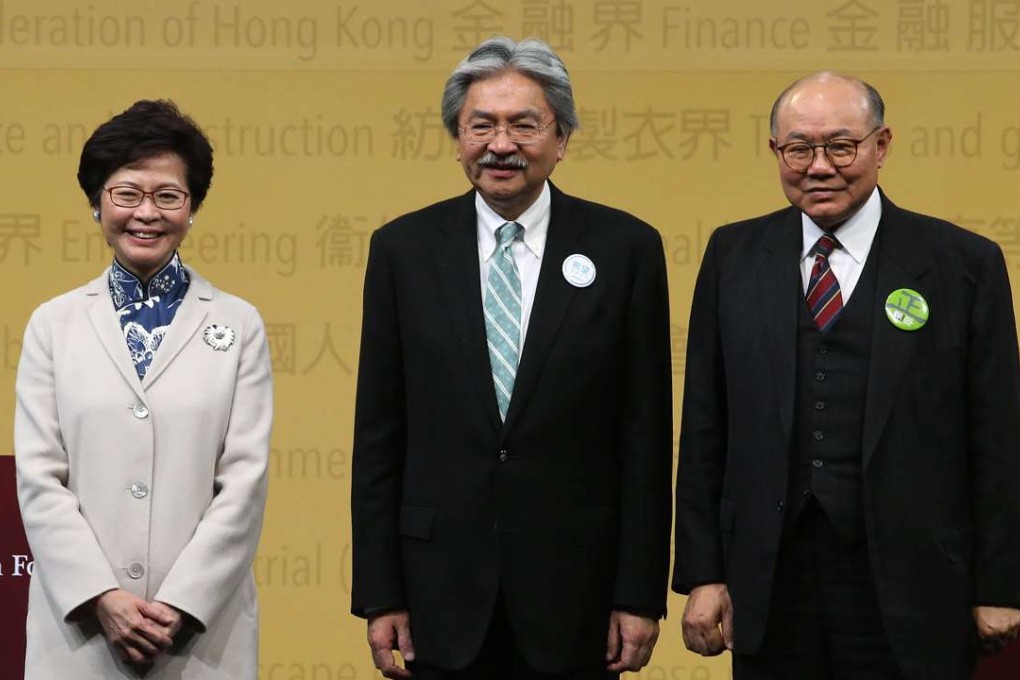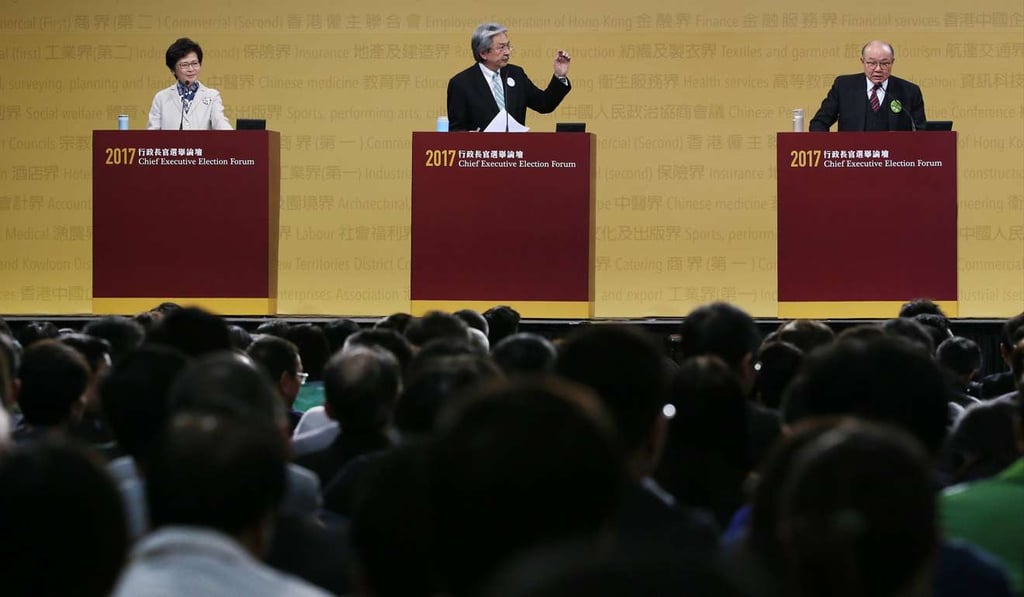Front runners in Hong Kong leadership race dodge June 4 issue in bruising debate
Carrie Lam and John Tsang mix sarcasm, humour and outright attack as they trade blows one week ahead of vote

The two front runners in Hong Kong’s leadership race shied away from stating their positions over vindication of the Tiananmen Square crackdown of 1989 as they were publicly grilled for the first time by members of the committee that will pick the city’s chief executive next Sunday.
Sunday night’s 2½ hour election debate saw testy exchanges between Carrie Lam Cheng Yuet-ngor and John Tsang Chun-wah: Lam mocked Tsang for his “laid-back” working style, while the latter put her in the category of “politicians who think saying is achieving”.

Asked about Beijing’s crackdown on the student-led pro-democracy movement, which remains a highly contentious subject in the city, Tsang gave a meandering answer, saying “some time in the future we can see the issue being dealt with [by Beijing]”.
Lam said the incident was “saddening”, adding: “History will have its judgment.”
Lam, the former No 2 official seen as Beijing’s preferred candidate, appeared to be restrained and respectful at first, but returned to the combative style she displayed in previous debates when she was asked to rate Tsang’s performance when they were both serving in the government.
When I went to John’s office for a meeting, I saw that there was no file, no paper on his desk